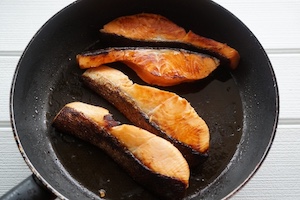U.S. Revises Definition of "Healthy" Foods, Adds Eggs and Salmon, Removes Cereal and White Bread

The U.S. Food and Drug Administration (FDA) announced new food labeling regulations on December 19, revising the standards for using the "healthy" label on food packaging. The updated definition removes white bread and breakfast cereals from the list, while adding foods such as eggs, olive oil, and salmon.
This marks the first update to these definitions in 30 years, with the last revision occurring in the 1990s. At that time, the standards were based on nutritional science and federal dietary guidelines, which focused on reducing the intake of various fats.
Under the new guidelines, companies wishing to use the "healthy" label on their products must include one or more of the foods recommended in the FDA's dietary guidelines, such as fruits, vegetables, dairy, grains, or proteins. Additionally, limits will be placed on added sugars, saturated fats, and sodium, depending on the product category.
Sugary cereals, high-sugar yogurts, white bread, and granola bars can no longer carry the "healthy" label, but foods like avocados, olive oil, salmon, eggs, and dried fruits are now eligible to display the label. Although water is not classified as food, the FDA’s dietary guidelines consider it the best beverage choice.
According to U.S. chronic disease statistics, 77% of Americans exceed the recommended intake of saturated fats, 63% consume too much added sugar, and 90% have excessive sodium intake. Nearly 80% of people do not consume enough dairy, fruits, and vegetables, which increases the risk of chronic diseases such as heart disease, diabetes, obesity, and cancer.
The FDA is currently designing a new label to help manufacturers quickly comply with the new health standards. The new regulations are expected to take effect within two months, with food manufacturers required to comply by February 2028.
- 86 reads
Human Rights
Fostering a More Humane World: The 28th Eurasian Economic Summi

Conscience, Hope, and Action: Keys to Global Peace and Sustainability

Ringing FOWPAL’s Peace Bell for the World:Nobel Peace Prize Laureates’ Visions and Actions

Protecting the World’s Cultural Diversity for a Sustainable Future

Puppet Show I International Friendship Day 2020

